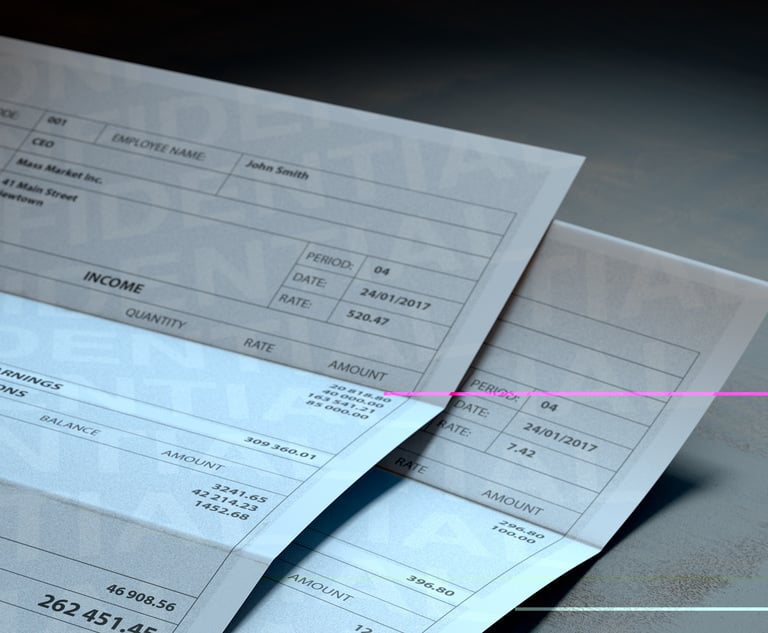Cybersecurity in the Health Care Sector
In his Health Law column, Francis J. Serbaroli discusses an important new report by a federal cybersecurity task force on the dangers of cyberattacks in the health care industry. He summarizes the report's comprehensive recommendations, and warns that health care organizations that ignore or underestimate the dangers of cyberattacks face considerable financial and legal liabilities.
September 26, 2017 at 02:04 PM
9 minute read
As if it were not facing enough challenges, the health care industry is now becoming a more frequent target for hacking and ransomware by miscreants both domestic and foreign. Health care organizations have lagged behind other business sectors in protecting data, which is hard to understand given the extreme sensitivity of the data in their possession: personal and health information on individual patients; confidential information on internal quality assurance, risk management and utilization; results of clinical research on drugs, medical devices, and therapies; personal information on employees; sensitive internal financial information; confidential information on potential partnerships and deals with other organizations; and so on. Of even greater concern is the reality that hackers can interfere with web-connected medical equipment and devices and physically harm patients.
The Health Care Industry Cybersecurity Task Force, which was established by Congress in 2015, is comprised of representatives from both the government and private sector, and is charged with analyzing and making recommendations regarding securing and protecting the health care sector against cybersecurity incidents. S.754—114th Congress: Cybersecurity Information Sharing Act of 2015. The Task Force recently issued its “Report on Improving Cybersecurity in the Health Care Industry” (Report). The Report highlights the vulnerabilities to cyberattacks of organizations involved directly or indirectly in providing health care services and products, and makes recommendations to both the government and the industry to enhance awareness and improve protections.
Industry
The Report begins by describing the industry as a “mosaic” of large health care systems, physician practices, public and private payors (e.g., Medicare, Medicaid, private insurers and plans), research institutions, medical device developers and manufacturers, software companies, as well as a large and diverse population of patients. It observes that the continuing evolution of electronic health records and the health care industry's extensive connectivity to the Internet have led to major improvements in both the quality and timeliness of patient care. The Report notes that the downside to these advances is that they have resulted in an increased attack surface for health care providers, medical device companies, and many other parts of the health care industry. The Report emphasizes that securing health care data as well as securing the operation of medical devices is essential to protecting patients and providing them with the highest level of medical care.
Turning to the reality of cybersecurity and preparedness in the industry, the Report found that many health care organizations
This content has been archived. It is available through our partners, LexisNexis® and Bloomberg Law.
To view this content, please continue to their sites.
Not a Lexis Subscriber?
Subscribe Now
Not a Bloomberg Law Subscriber?
Subscribe Now
NOT FOR REPRINT
© 2025 ALM Global, LLC, All Rights Reserved. Request academic re-use from www.copyright.com. All other uses, submit a request to [email protected]. For more information visit Asset & Logo Licensing.
You Might Like
View All

You’re Sure You’ve Looked? The Use of Jackson Affidavits and Efforts to Locate Discovery Materials
8 minute read

Five Years After Vega Much Remains Unsettled in Pay Frequency Litigation
Trending Stories
- 1'No Retributive Actions,' Kash Patel Pledges if Confirmed to FBI
- 2Justice Department Sues to Block $14 Billion Juniper Buyout by Hewlett Packard Enterprise
- 3A Texas Lawyer Just Rose to the Trump Administration
- 4Hogan Lovells Hires White & Case Corporate and Finance Team in Italy
- 5New York District Attorneys Endorse Governor's Proposed Rollback of Discovery Reforms
Who Got The Work
J. Brugh Lower of Gibbons has entered an appearance for industrial equipment supplier Devco Corporation in a pending trademark infringement lawsuit. The suit, accusing the defendant of selling knock-off Graco products, was filed Dec. 18 in New Jersey District Court by Rivkin Radler on behalf of Graco Inc. and Graco Minnesota. The case, assigned to U.S. District Judge Zahid N. Quraishi, is 3:24-cv-11294, Graco Inc. et al v. Devco Corporation.
Who Got The Work
Rebecca Maller-Stein and Kent A. Yalowitz of Arnold & Porter Kaye Scholer have entered their appearances for Hanaco Venture Capital and its executives, Lior Prosor and David Frankel, in a pending securities lawsuit. The action, filed on Dec. 24 in New York Southern District Court by Zell, Aron & Co. on behalf of Goldeneye Advisors, accuses the defendants of negligently and fraudulently managing the plaintiff's $1 million investment. The case, assigned to U.S. District Judge Vernon S. Broderick, is 1:24-cv-09918, Goldeneye Advisors, LLC v. Hanaco Venture Capital, Ltd. et al.
Who Got The Work
Attorneys from A&O Shearman has stepped in as defense counsel for Toronto-Dominion Bank and other defendants in a pending securities class action. The suit, filed Dec. 11 in New York Southern District Court by Bleichmar Fonti & Auld, accuses the defendants of concealing the bank's 'pervasive' deficiencies in regards to its compliance with the Bank Secrecy Act and the quality of its anti-money laundering controls. The case, assigned to U.S. District Judge Arun Subramanian, is 1:24-cv-09445, Gonzalez v. The Toronto-Dominion Bank et al.
Who Got The Work
Crown Castle International, a Pennsylvania company providing shared communications infrastructure, has turned to Luke D. Wolf of Gordon Rees Scully Mansukhani to fend off a pending breach-of-contract lawsuit. The court action, filed Nov. 25 in Michigan Eastern District Court by Hooper Hathaway PC on behalf of The Town Residences LLC, accuses Crown Castle of failing to transfer approximately $30,000 in utility payments from T-Mobile in breach of a roof-top lease and assignment agreement. The case, assigned to U.S. District Judge Susan K. Declercq, is 2:24-cv-13131, The Town Residences LLC v. T-Mobile US, Inc. et al.
Who Got The Work
Wilfred P. Coronato and Daniel M. Schwartz of McCarter & English have stepped in as defense counsel to Electrolux Home Products Inc. in a pending product liability lawsuit. The court action, filed Nov. 26 in New York Eastern District Court by Poulos Lopiccolo PC and Nagel Rice LLP on behalf of David Stern, alleges that the defendant's refrigerators’ drawers and shelving repeatedly break and fall apart within months after purchase. The case, assigned to U.S. District Judge Joan M. Azrack, is 2:24-cv-08204, Stern v. Electrolux Home Products, Inc.
Featured Firms
Law Offices of Gary Martin Hays & Associates, P.C.
(470) 294-1674
Law Offices of Mark E. Salomone
(857) 444-6468
Smith & Hassler
(713) 739-1250






